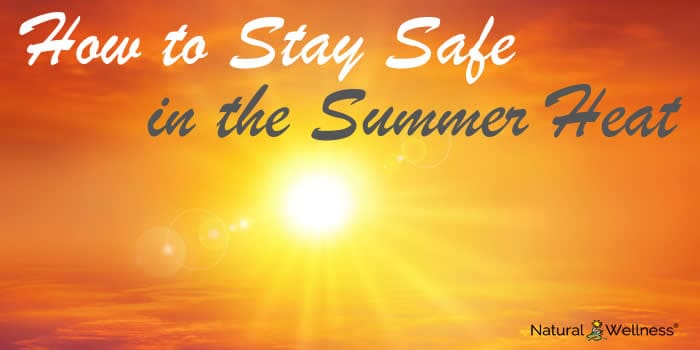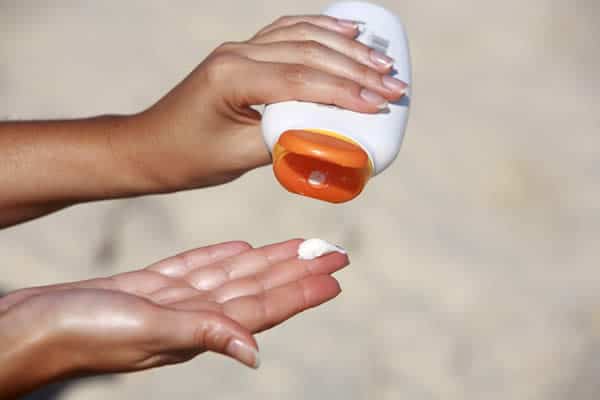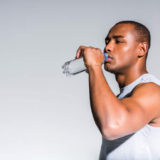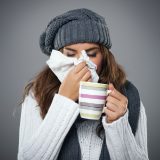

Many people look forward to the heat of the summer, especially when it follows an unseasonably cold winter or spring. There’s something about the feeling you get when the sun comes out and it finally warms up a bit, allowing you to get outdoors and enjoy the fresh air.
Yet, there are some summer days when it gets so hot that it could potentially hurt your health. On days such as these, it’s important to protect yourself against heat-related illness. How can you enjoy the heat while still staying safe?
5 Tips to Stay Safe During a Heat Wave
If you live in an area that is experiencing several days in a row of high heat, here are a few tips to stay safe:
- Spend limited time outside. Only go outside on excessively hot days when it can’t be avoided. And if you do have to spend time outdoors, try to avoid the hottest time of the day. This time varies based on where you live. Most weather apps will tell you what hours are the warmest.
- Stay in the air conditioning as much as possible. Air conditioning makes hot summer days feel not so bad. If you don’t have air, fans can help. However, if the room is 90 degrees Fahrenheit or hotter, don’t face the fan toward you or it could cause you to dehydrate. (1)
- Stay hydrated. Speaking of dehydration, sip on water all day long when it’s hot out, especially if you have to work outdoors. If you do work outdoors, aim to consume one cup of water every 15 to 20 minutes but don’t exceed six cups per hour or you could cause the sodium levels in your blood to drop too low. (2) Eating salty snacks regularly can help keep these sodium levels where they need to be.
- Wear cool clothes. Lightweight clothes can keep you cool in the summer heat. Lighter colors help as well since they will reflect the sun’s warmth versus drawing it in.
- Use sunscreen. If your typical summer outfit is a swimsuit because you spend a lot of time by the pool, don’t forget to use sunscreen so you don’t burn. The best sunscreen protects you from both UVA and UVB rays (called a broad-spectrum sunscreen), is water-resistant, and has an SPF of 30 or higher. (3)

Additional Tips for How to Survive a Heat Wave
Several hot days in a row can also make it harder to sleep. To improve your ability to fall and stay asleep, the Sleep Foundation recommends that you keep your bedroom curtains closed so the room stays cooler, sleep in clothes that won’t make you too hot, and use a bedside fan to help colder air circulate. (4)
Research has also connected heat waves with poorer mental health. (5) So, if you feel your depression, anxiety, or other mental disorder worsen during times of excessive heat, contact your doctor to discuss how you feel. They can offer advice for better surviving the hot weather given your mental condition.
What Should You NOT Do During a Heat Wave?
While it may be tempting to deal with heat-related fatigue by consuming an energy drink, the caffeine can add extra strain on your body (2). So, it’s best to stick with water instead. It’s also recommended to stay away from alcohol for at least 24 hours if you plan to be outside in the heat, as this can help reduce your risk of developing a heat-related illness. (2)
Know When Medical Treatment is Necessary
Sometimes, heat-related illnesses will go away on their own simply by moving to a cooler location, drinking water, and giving your body a rest. Other times, medical treatment might be necessary to protect your health.
If you are experiencing any of the following symptoms, the Centers for Disease Control and Prevention recommends that you seek treatment immediately: (6)
- Heat cramps: you have muscle cramps that last one hour or more, especially if you are on a low-sodium diet or have heart issues.
- Heat exhaustion: you feel nauseous, tired, or dizzy and the symptoms continue to get worse or don’t go away after one hour, or you throw up after your body has overheated.
- Heatstroke: when your body temperature rises to 103 degrees Fahrenheit or higher, it is critical to get medical attention right away.
If you are around someone who experiences heatstroke, move them to a cooler location, cool them down as much as possible either with a bath or cool cloths, and don’t give them anything to drink while waiting for help to arrive.
What Causes Extreme Weather Heat?
Environmental experts say that extreme heat is a result of the Earth getting warmer combined with weather pattern changes. (7) They also indicate that heatwaves are expected to become more common, and more severe. (8) That makes following these safety tips even more important in the years ahead.




